business
Relai’s Bitcoin Mission: Bringing Europeans the Orange Coin Despite the Red Tape
Published
3 months agoon
By
admin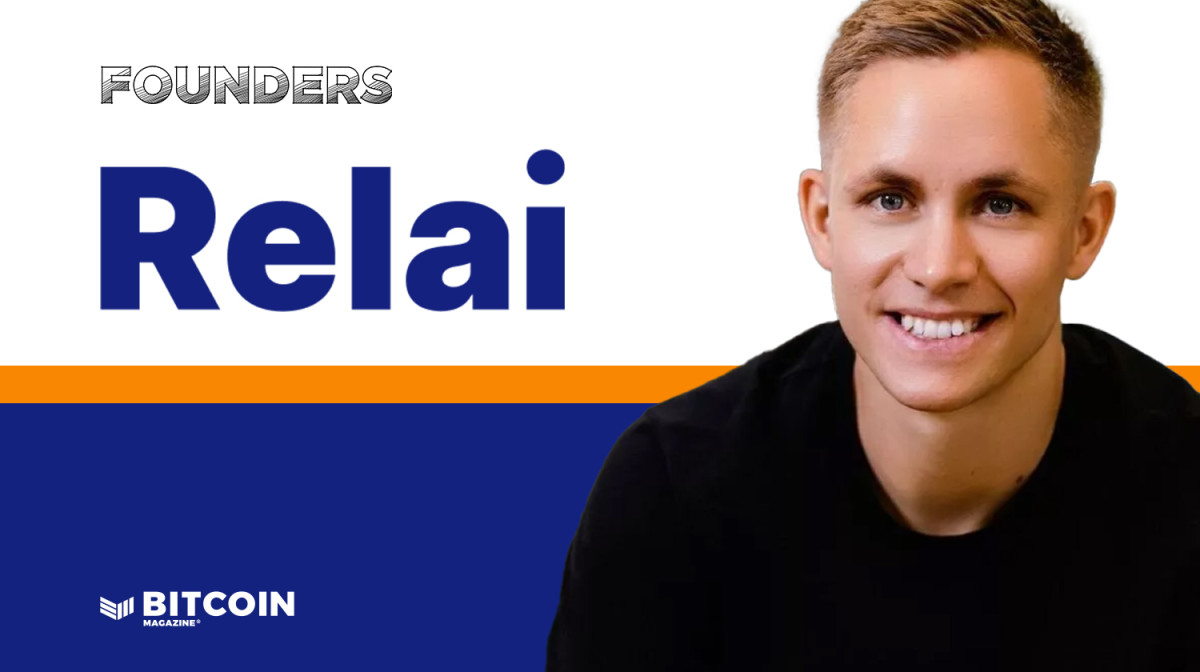

Company Name: Relai
Founders: Julian Liniger and Adam Bilican
Date Founded: July 2020
Location of Headquarters: Zurich, Switzerland
Amount of Bitcoin Held in Treasury: One-third of Relai’s treasury
Number of Employees: 30
Website: https://relai.app/
Public or Private? Private
Julian Liniger is on a mission to give more Europeans exposure to Bitcoin — despite regulatory bodies making it more difficult for Bitcoin businesses like the company he co-founded, Relai, to operate on the continent.
Liniger, a clean-cut Swiss entrepreneur who was one of Forbes’ 30 Under 30 in 2022, believes that there is much work to be done in bringing bitcoin to Europeans, even if new regulatory regimes like Markets in Crypto-Assets Regulation (MiCA) create more red tape around serving EU and UK citizens.
“We are working to make Bitcoin more accessible, easier to use and easier to buy for normal people,” Liniger told Bitcoin Magazine.
“We’re mainly targeting newcomers — the 90% of the people that don’t have easy access to bitcoin yet or that just haven’t tried yet because they were also not educated yet. In Europe, around 8% to 10% of people have bitcoin and 90% still don’t,” he added.
To reach this 90%, Liniger and the team at Relai have had to obtain the proper licenses and follow certain regulatory procedures, like requiring that customers complete Know Your Customer (KYC) procedures in order to use the app. Keeping Relai compliant is a tedious process, but Liniger, Libertarian-minded yet pragmatic, sees it as a necessary evil.
“I try to build the best company and onboard as many people as possible to Bitcoin in the most Bitcoiner way possible, which is certainly self-custodial and Bitcoin only, but we also need to stay in the realm of what is legal,” Liniger explained.
“So, we adhere to these regulations, whether I as an individual like it or not. As a business person, I need to make these decisions,” he added.
Wise words from someone who’s no stranger to taking the hard road.
The Road To Relai
Liniger was first introduced to bitcoin and cryptocurrency in 2015 and quickly went down the broader crypto rabbit hole.
In his early 20s, he watched bitcoin’s price skyrocket from $1,000 to $20,000 and experienced the Ethereum ICO boom from up close as he spent a portion of 2017 in San Francisco, then a hotbed for crypto developer activity, on an exchange semester while pursuing his master’s degree in business administration (MBA).
Upon returning home to Switzerland in 2018, he turned down a well-paid consulting job in the world of traditional finance and instead founded Bravis, a crypto consulting firm. During this time, he helped banks prepare to offer Bitcoin services.
“[We] helped them to position strategically in this new world and also to conceptualize some products, like actually starting to offer Bitcoin custody, trading, etc., which was inconceivable back then,” said Liniger. “Now, a lot of Swiss banks are doing it.”
By 2019, Liniger’s entrepreneurial drive had kicked into a new gear. He wanted to build something bigger than a consulting firm. This urge coincided with his personally adopting a bitcoin-not-crypto investment thesis and realizing that no app in the Swiss or broader European market allowed users to buy, non-custodially hold, and use bitcoin (all of which Relai does).
That same year, Liniger and his soon-to-be co-founder at Relai, Adam Bilicon, participated in a hackathon and made it into the finals with their concept for the company. By 2020, the two had built a prototype and had raised money from two angel investors. By summer of that year, the Relai app went live with the intention of first providing access to bitcoin and then offering other crypto assets.
The Bitcoin community didn’t like the latter notion, though.
Bitcoin Only
Liniger recalled introducing Relai’s promo phrase “easy crypto investing” and the instant backlash it drew from Bitcoiners.
“They were like ‘Why crypto? Just stick to Bitcoin and make it really great,’” said Liniger, adding that Relai’s users urged him and his partner to simply make the app as easy-to-use as possible and to incorporate then-new Bitcoin technology like Lightning, both of which Relai have done.
Liniger, who’d first conceptualized Relai as a Bitcoin-first crypto app, made the decision to make it a Bitcoin-only app.
“[I thought] it wouldn’t hurt to also have a couple other [cryptos],” recalled Liniger.
“But then I realized it actually would hurt. All the other [cryptos] don’t make sense in the long run if you want to be a savings app. Bitcoin is a savings technology; it’s digital gold,” he added, noting that other crypto assets neither purport to be or act as a store of value.
Liniger also noted that by 2020, both Bitcoin-only venture capital firms and more Bitcoin-only companies were beginning to arise, and he felt that Relai could be a part of this trend.
“We had River in the US, Bull Bitcoin in Canada, etc, and we were thinking we could be the leader of this category in Europe,” said Liniger.
Developing A European User Base
Based in Switzerland, Liniger and the Relai team had a leg up on the rest of Europe, as regulations in Switzerland are a bit more relaxed than those in the European Union. Liniger, however, did not want to just serve Swiss citizens for two reasons.
The first is that the percentage of Swiss citizens that own bitcoin is closer to 20%, according to Liniger, as compared to the 10% or so of Europeans from other countries. There’s less of a market for those who are new to Bitcoin to go after in Switzerland as compared to those living in the EU and UK.
The second reason is that Switzerland’s population is about 8.7 million, whereas the total population of the EU plus UK is over 500 million.
In the past four years, Relai has acquired 120,000 users across the continent and Liniger says the growth curve is accelerating even as the company faces certain regulatory impediments.
“We are not currently allowed to actively acquire users in the EU for regulatory reasons,” explained Liniger. “We can do active marketing tactics in Switzerland, but not in all the EU countries.”
Even in the absence of marketing, Relai continues to grow its user base, especially in Germany, Italy and France.
The number of Relai users in these countries will likely continue to grow rapidly as the company is in the process of obtaining licensing from France that will allow the company to advertise to EU customers.
“Probably by the end of this year, we will get the French license approval,” said Liniger. “Then, at the beginning of next year, there’s going to be MiCA and this [French license] is going to transition into a MiCA license, which will then allow us to actively acquire customers in all the EU.”
Once this happens, Liniger believes that upwards of 90% of bitcoin purchases in the EU and UK will happen via Relai.
The Cost Of Compliance
While Liniger, notably calm and level-headed, talks about the process of overcoming regulatory hurdles, one can’t help but imagine how frustrating the process has been for him and his team.
He stated that regulatory bodies and requirements have become significantly more intrusive for not only startups like Relai, but established financial institutions, as well.
“I heard stories from our CFO who used to work at ING, a huge bank, four or five years ago,” shared Liniger. “He was in one of these risk management compliance departments, which, when he joined, was like three or four people and the team has 10x’d in the four or five years since.”
Liniger went on to explain that many of Relai’s peers have up to a third of their team focused on regulatory compliance.
While he’s hopeful that the likes of Coinbase and Kraken fighting the US Securities and Exchange Commission (SEC) in court will set some sort of precedent that will get regulators to back off, he doesn’t see the trend of regulatory overreach reversing just yet, which seems slightly worrisome to him.
“We don’t have these resources at all,” said Liniger, comparing Relai’s funds to the type of money that Coinbase and Kraken have in their coffers to fight regulators in court.
This is part of the reason Relai didn’t fight back in court when regulators told them they had to KYC all of their customers.
KYC Required, But Do Not Despair
Relai recently announced that all users would have to provide their personal information by October 31, 2024 to continue using the app, after four years of being able to offer services without requiring users to do so.
“We were just basically forced to by the EU regulators and, increasingly, also from the Swiss regulators,” said Liniger in regard to having to make customers complete the KYC process. “The EU is pressuring Switzerland.”
While Liniger didn’t sound particularly happy about this, he also didn’t sound defeated. Instead, he seemed as focused as ever on his mission to bring bitcoin to the 90% of EU and UK citizens who still don’t have any.
“50% plus of the people will want some access to Bitcoin just because it’s a savings technology,” explained Liniger, which means he still has about 200 million customers (a 170x of Relai’s current users base) to reach in the broader jurisdiction Relai serves.
Admittedly, he knows some of these potential customers will opt to buy bitcoin or bitcoin ETFs that major financial institutions custody for them instead of using Relai, though he believes that the youth, who are more distrusting of established financial institutions, will opt to use Relai.
“The more progressive younger people will want to take custody themselves,” explained Liniger. “They will use something like Relai where they can buy directly into self custody and set up a savings plan, using it as a sovereign way of saving their money and their purchasing power into the future.”
Source link
You may like


Massive Ethereum Buying Spree – Taker Buy Volume hits $1.683B In One Hour


Ethereum lags behind Bitcoin but is expected to reach $14K, boosting RCOF to new high
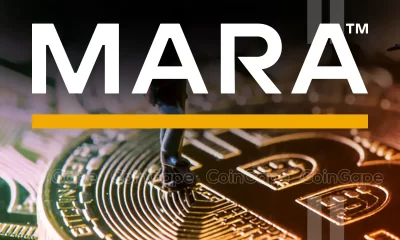

Bitcoin Miner MARA Buys Another 5771 BTC As Price Nears $100k


Jason "Spaceboi" Lowery's Bitcoin "Thesis" Is Incoherent Gibberish


Bankrupt Crypto Exchange FTX Set To Begin Paying Creditors and Customers in Early 2025, Says CEO


Top crypto traders’ picks for explosive growth by 2025
business
MicroStrategy Boosts Convertible Notes Offering to $2.6 Billion to Buy Even More Bitcoin
Published
2 days agoon
November 20, 2024By
admin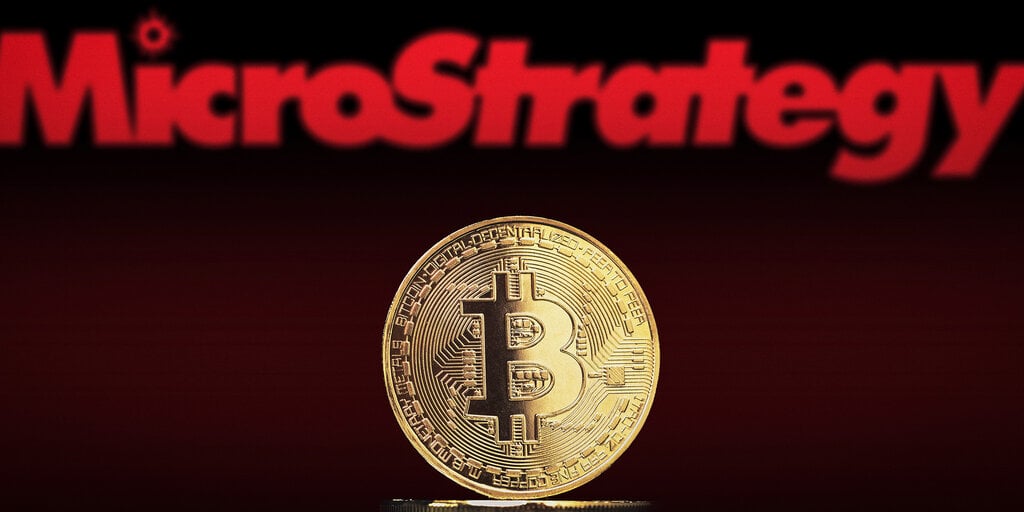
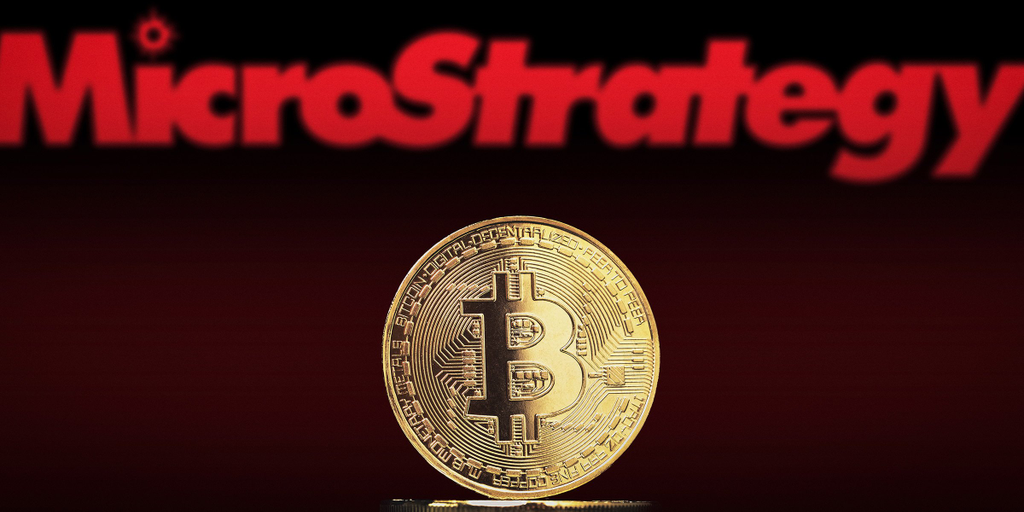
MicroStrategy’s thirst for Bitcoin cannot be quenched, despite holding over $31 billion worth.
Barely two days after announcing a plan to sell $1.75 billion worth of convertible notes as a means to buy up more of the world’s top cryptocurrency, the firm said on Wednesday that it has expanded that offering to $2.6 billion worth of notes.
Michael Saylor, MicroStrategy’s co-founder and executive chairman, said the move was made due to “high demand” for the new notes over the last 48 hours.
Given high demand, we upsized our $MSTR offering of 0% convertible bonds due 2029 from $1.75 billion to $2.6 billion, including a $400 million greenshoe option, and priced it at a 55% conversion premium.
— Michael Saylor⚡️ (@saylor) November 20, 2024
As with those initially offered on Monday, the additional zero-interest senior notes announced today will mature in 2029 and are available only to qualified institutional buyers. They will be eventually redeemable for cash, MicroStrategy stock, or a mix of both.
That’s a mighty tempting offer for many Wall Street investors, given the recent, explosive growth of MicroStrategy’s stock. The company, which owns over 331,000 BTC—1.58% of the token’s total possible supply—has seen its stock balloon by over 870% in the last year, in the wake of Bitcoin’s surge. Earlier this month, the stock reached an all-time high.
If MicroStrategy manages to raise another $2.6 billion to buy up more Bitcoin, it would be able to purchase some 27,450 BTC at current prices.
While MicroStrategy once billed itself as a business intelligence and software company, the company’s bold Bitcoin wager has upended not just its value to shareholders, but also the way it now sees itself: as the “world’s first and largest Bitcoin treasury company.”
Edited by Andrew Hayward
Daily Debrief Newsletter
Start every day with the top news stories right now, plus original features, a podcast, videos and more.
Source link
business
Marathon Digital Issues $850M Convertible Note Sale to Repurchase Debt, Acquire Bitcoin
Published
3 days agoon
November 20, 2024By
admin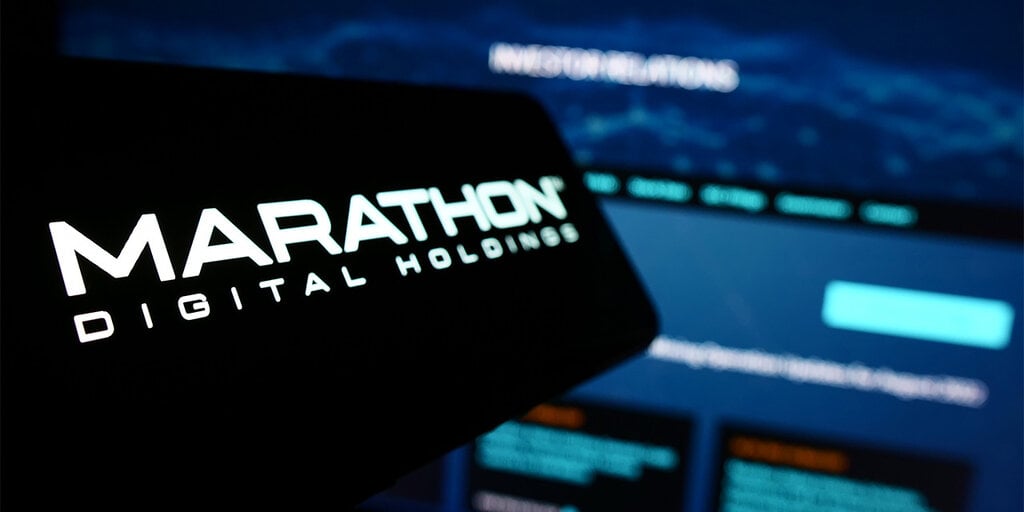
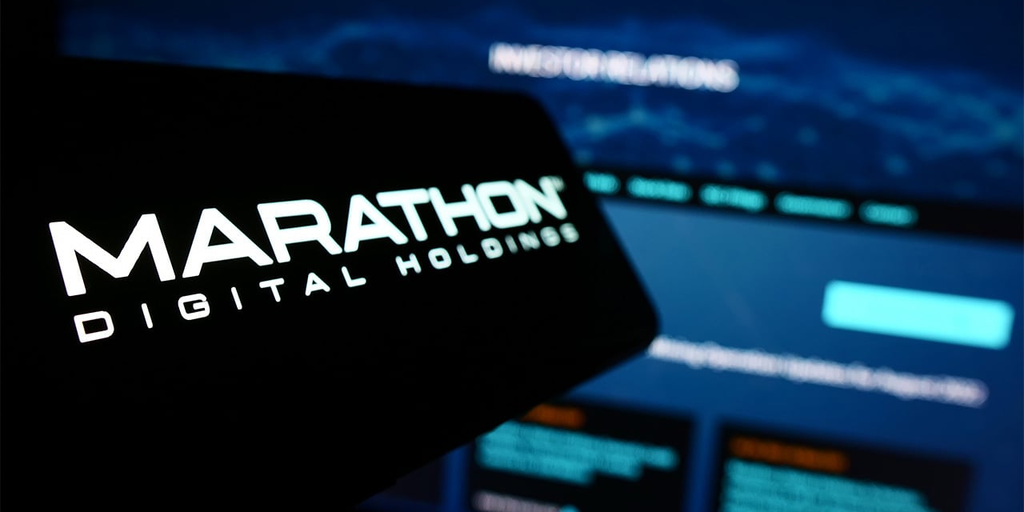
Bitcoin mining company Marathon Digital Holdings (MARA) is issuing $850 million in convertible notes, with the option to expand to $1 billion, as part of plans to repurchase existing debt, acquire Bitcoin, and fund corporate initiatives amid a recovering crypto market.
The Fort Lauderdale, Florida-based firm said Monday it plans to use $199 million of the expected $833 million in net proceeds from the sale to repurchase $212 million of its existing 2026 convertible notes, according to a statement.
The remainder will be allocated to acquiring additional Bitcoin and for general corporate purposes, including working capital, strategic acquisitions, expansion of assets, and repayment of other debt, the company said.
Convertible notes are a type of debt-based financial instrument that a company sells to raise capital. The notes are typically converted into equity shares at a later date, enabling investors to hold partial ownership of the company.
Marathon’s latest offering comes as several firms globally begin acquiring and holding Bitcoin on their balance sheet following a market rally that has catapulted the price of the world’s oldest crypto to more than $94,000.
The most prominent include MicroStrategy, holding up to $30 billion in Bitcoin, and Japan’s Metaplanet, which has scooped up more than 1,000 BTC this year, worth roughly $93 million to date.
Meanwhile, Semler Scientific (SMLR) acquired nearly $18 million in bitcoin earlier this month, the company said in a statement.
Starting December 1, 2027, holders of Marathon’s convertible notes can ask the company to repurchase them for cash, though terms may change if major events like mergers, acquisitions, or delisting occur.
The notes, which mature on March 1, 2030, can also be converted into cash, MARA stock, or a mix of both, the company said.
The Bitcoin miner’s stock traded at $19.86 on Tuesday, up 9% on the day, while its after-hours price remains little changed, Google Finance data shows.
Edited by Sebastian Sinclair
Daily Debrief Newsletter
Start every day with the top news stories right now, plus original features, a podcast, videos and more.
Source link
business
Bitcoin Multisig Company Casa Makes Self-Sovereignty Easy
Published
3 days agoon
November 19, 2024By
admin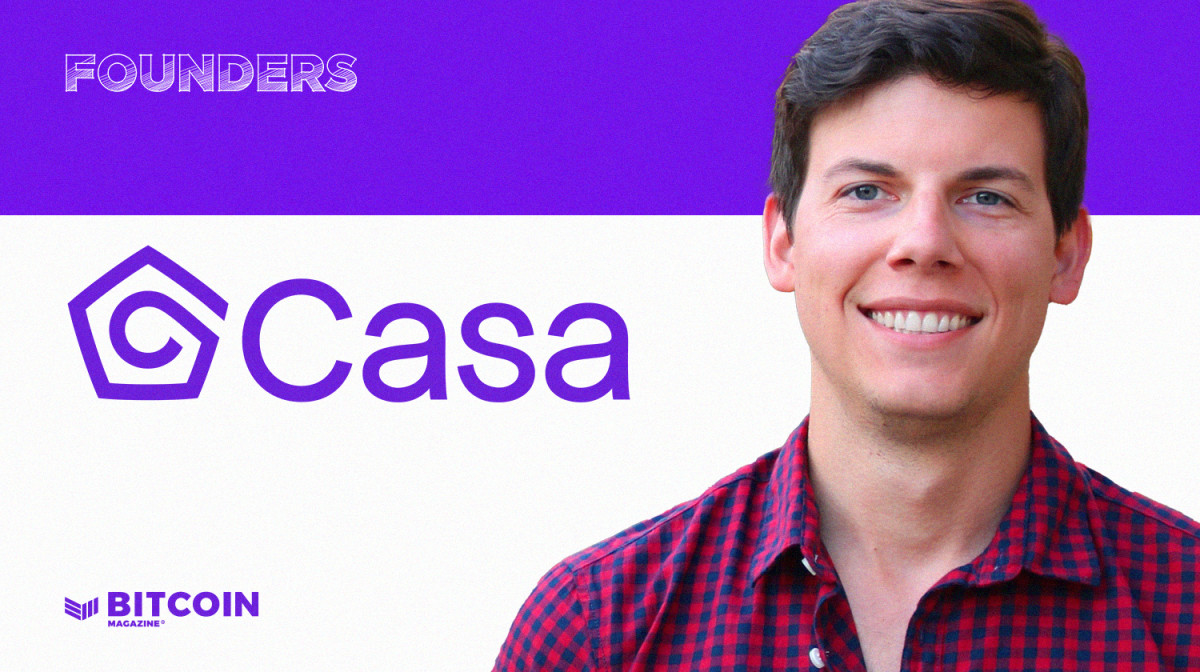

Company Name: Casa
Founders: Nick Neuman, Jameson Lopp and others
Date Founded: Late 2017
Location of Headquarters: Remote
Website: https://casa.io/
Public or Private? Private
Being self-sovereign isn’t easy — especially if you aren’t technically-minded.
The team at Casa gets this and this is why, for over six years, the company has been helping customers secure their bitcoin in multisig wallets (also referred to as multi-key vaults).
The company was the first to offer an easy-to-use version of such a product that also came with customer support. It was Casa’s plan from the onset to be there for their customers, as this type of support was lacking in the broader crypto industry.
“The service element was what was missing from a lot of solutions out there,” Casa co-founder and CEO Nick Neuman told Bitcoin Magazine.
“People need help doing this stuff, especially for large amounts of money. It was always the plan to support customers, because it was impossible to get support from exchanges or hardware wallets,” he added.
“So, we just took a very support-heavy and user experience focused approach to everything.”
Casa’s approach has paid off, as the company has become a household name in the Bitcoin and crypto space, and has come a long way since Neuman first had the idea for a company like Casa seven years ago.
How Casa Started
It was toward the latter part of the 2017 bitcoin bull run when Neuman had grown tired of his previous work in finance and tech, and found himself down the proverbial Bitcoin (and crypto) rabbit hole. By February 2018, he had an idea for a company and entered himself into a hackathon to attempt to bring the idea to life.
“I participated in the first ETHDenver hackathon,” said Neuman.
“I went in with an idea that I called key split, which was basically taking a private key using Shamir secret sharing and creating a social recovery mechanism,” he added.
“I recruited a couple of people at the hackathon to build it with me, and we ended up winning.”
Neuman quit his job and set out to start a company around this technology he and his team had created. But word had gotten out about his victory at ETHDenver, and the previous CEO of Casa, who was the head of the company before it pivoted to offering multisig wallets, reached out to Neuman, asking him to come on board.
It was after learning that Casa had just recruited Jameson Lopp, self-described “professional cypherpunk” and now Chief Security Officer at Casa, that Neuman decided to join the team.
“I was like, ‘Well, Jameson’s going to be an unfair advantage,’” recalled Neuman with a chuckle. “Instead of starting my own company, I’m going to join.”
Soon after Neuman came on board, Casa retired its then flagship product, the Casa Node, and the company shifted its focus to user-friendly multi-key vaults, a much needed product at the time. Before Casa, multisig software was so complicated that even Neuman himself struggled to use it.
“There was the Armory multisig wallet and the Glacier protocol,” recounted Neuman.
“Glacier wasn’t even software. It was like a giant GitHub repo that you had to follow in order to set up your cold storage. Armory was super janky, too. I remember trying to use it once, and I couldn’t figure it out,” he added.
“We were the first to create multisig that was usable.”
How Casa Works
Casa offers users two main set ups. The first is a five-key vault, which includes three keys on three different hardware wallets, one on the user’s phone (which is backed up securely in the cloud) and one that Casa holds.
This was Casa’s first multisig product, which it rolled out while the company primarily focused on serving customers with a high net worth in bitcoin. Casa learned an important lesson while serving these clients, which was that even if developers create easy-to-use software, people still want an expert there supporting them as they use it — especially if they’re securing a lot of value.
“When you’re dealing with millions of dollars worth of Bitcoin, you really want to have an expert there who helps make sure that you don’t make a mistake,” said Neuman.
Casa’s other main product is for those who might not be sitting on bitcoin whale-type wealth, but who still hold enough bitcoin where a less-than-ideal security setup has the potential to keep them awake at night.
This product is Casa’s three-key vault, which the company brought to market in early 2019. It includes a key on a hardware wallet, a key on the user’s phone (which can be swapped out for another key on a second hardware wallet if the user prefers) and a key that Casa holds.
Casa began offering this setup because it “always wanted to be able to offer great security and usability to as many people as possible,” according to Neuman.
New Casa Services And Features
In the past year, Casa has further broadened the services it offers.
Two weeks ago, it announced its Enterprise Plan, which enables companies to more easily secure their bitcoin treasuries.
“We’ve had businesses using Casa for self-custody for years, but they were always using our retail plans and just making it work,” explained Neuman.
“We changed that, though, because I think corporate treasuries holding bitcoin has been popularized by MicroStrategy. We actually see that as a growing trend that’s worth taking advantage of, and we’re hearing from more Bitcoin companies that are storing bitcoin on their balance sheet that they need help with security,” he added.
This summer, Casa also began enabling users to replace hardware wallets used in their vaults with YubiKeys.
“We see people struggle with hardware wallets all the time, and so we were thought ‘How can we make this simpler?’” said Neuman. “We pieced together a couple of new pieces of technology that have passkey and and YubiKey key capabilities and were able to build something that hadn’t been done before.”
And in March, Casa launched Casa Inheritance, a service that makes it easier for the loved ones of Casa users to access the bitcoin secured in the vaults in the event of a user’s death.
“With Inheritance, we heard from our customers all the time ‘Okay, I feel good about my Casa setup, but I’m worried about what happens if I die,’” explained Neuman. “So, we built that feature to make it super easy for their family to recover the bitcoin in case the main account holder dies.”
Normalizing Multisig
Despite all of the work Casa has done in the last six years, some still have an emotional block when it comes to switching to a multisig setup. Whether it’s because this type of wallet format was more difficult to enable years ago or because it’s understandably anxiety-provoking to make changes to one’s bitcoin security, people seem to drag their feet when it comes to using a multisig setup — even if they really want to — according to Neuman.
“They hear the word ‘multisig’ and they’re like, ‘That’s too hard,’” explained Neuman. “What they don’t realize is that to get started with multisig with Casa, you can use your same hardware wallet, and it is literally the same amount of effort as using a hardware wallet, but you significantly improve your security by doing it.”
Neuman thinks that more people will come around and that multisig will become more widely adopted, especially during a bull market.
“It takes the price of bitcoin going up where people suddenly have more value to secure,” said Neuman. “And it takes people hearing from their friends ‘Yeah, I’m doing multisig and it’s not as hard as it sounds.”
For those that do get the urge to try Casa, the company is allowing people to try the service at no charge for a month.
Neuman feels that as more users come on board, it will not only benefit them, but potentially the industry at large as well.
“If we can make it out of this bull market without another massive blow up like FTX because we’ve helped more people self-custody in a way that they feel good about, that feels like a real win to me.”
Source link

Massive Ethereum Buying Spree – Taker Buy Volume hits $1.683B In One Hour

Ethereum lags behind Bitcoin but is expected to reach $14K, boosting RCOF to new high

Bitcoin Miner MARA Buys Another 5771 BTC As Price Nears $100k

Jason "Spaceboi" Lowery's Bitcoin "Thesis" Is Incoherent Gibberish

Bankrupt Crypto Exchange FTX Set To Begin Paying Creditors and Customers in Early 2025, Says CEO

Top crypto traders’ picks for explosive growth by 2025

3 Tokens Ready to 100x After XRP ETF Gets Approval

Gary Gensler’s Departure Is No Triumph For Bitcoin

Magic Eden Token Airdrop Date Set as Pre-Market Value Hits $562 Million

Blockchain Association urges Trump to prioritize crypto during first 100 days

Pi Network Coin Price Surges As Key Deadline Nears

How Viable Are BitVM Based Pegs?

UK Government to Draft a Regulatory Framework for Crypto, Stablecoins, Staking in Early 2025

Bitcoin Cash eyes 18% rally

Rare Shiba Inu Price Patterns Hint SHIB Could Double Soon
182267361726451435

Top Crypto News Headlines of The Week

Why Did Trump Change His Mind on Bitcoin?

New U.S. president must bring clarity to crypto regulation, analyst says

Ethereum, Solana touch key levels as Bitcoin spikes

Bitcoin Open-Source Development Takes The Stage In Nashville

Will XRP Price Defend $0.5 Support If SEC Decides to Appeal?

Bitcoin 20% Surge In 3 Weeks Teases Record-Breaking Potential

Ethereum Crash A Buying Opportunity? This Whale Thinks So

Shiba Inu Price Slips 4% as 3500% Burn Rate Surge Fails to Halt Correction

‘Hamster Kombat’ Airdrop Delayed as Pre-Market Trading for Telegram Game Expands

Washington financial watchdog warns of scam involving fake crypto ‘professors’

Citigroup Executive Steps Down To Explore Crypto
Mostbet Güvenilir Mi – Casino Bonus 2024

Bitcoin flashes indicator that often precedes higher prices: CryptoQuant
Trending

 2 months ago
2 months ago182267361726451435

 24/7 Cryptocurrency News3 months ago
24/7 Cryptocurrency News3 months agoTop Crypto News Headlines of The Week

 Donald Trump4 months ago
Donald Trump4 months agoWhy Did Trump Change His Mind on Bitcoin?

 News3 months ago
News3 months agoNew U.S. president must bring clarity to crypto regulation, analyst says

 Bitcoin4 months ago
Bitcoin4 months agoEthereum, Solana touch key levels as Bitcoin spikes

 Opinion4 months ago
Opinion4 months agoBitcoin Open-Source Development Takes The Stage In Nashville

 Price analysis3 months ago
Price analysis3 months agoWill XRP Price Defend $0.5 Support If SEC Decides to Appeal?

 Bitcoin4 months ago
Bitcoin4 months agoBitcoin 20% Surge In 3 Weeks Teases Record-Breaking Potential


